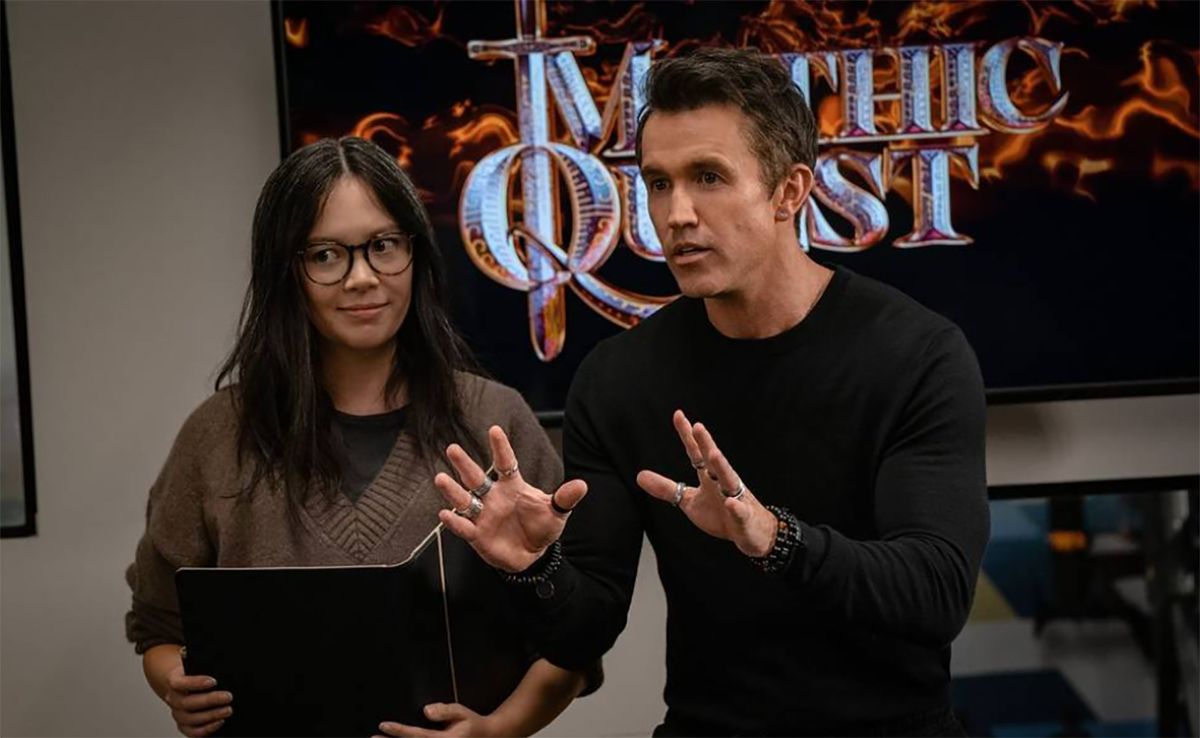Julia Bradbury broke down into tears as she recalled the heartbreaking moment she informed her husband Gerard Cunningham about her cancer diagnosis.
The Countryfile presenter, 53, was diagnosed with breast cancer in September 2021 before undergoing a mastectomy to have her 6cm tumour removed.
Appearing on Davina McCall's Begin Again podcast, Julia spoke about the moment she phoned her partner, whom she has been married to since 2000, to break the devastating news.
Julia said: 'I told him, and we cried. And I said, "I'll do whatever I have to do to get through this. I will do whatever it is".'
Determined to fight, she expressed her readiness to face any challenge that may pop up ahead.
'If I have to lose a breast, I'll have to lose my hair. If I have to go, whatever it is I need to do,' she said. 'I'm going to do what I need to do to get through this'.
Julia Bradbury broke down into tears as she recalled the heartbreaking moment she informed her husband Gerard Cunningham about her cancer diagnosis
The Countryfile presenter, 53, was diagnosed with breast cancer in September 2021 before undergoing a mastectomy to have her 6cm tumour removed (pictured with husband)
The journalist underwent a mastectomy to have a 6cm tumour removed a month after publicly announcing her diagnosis in 2021 - pictured days before her mastectomy
Julia said fighting cancer is not the same for everyone. She said: 'Every type of cancer is different. Every type of breast cancer is different.
'You'll have a friend who's gone through breast cancer and she and I will sit down and have a story and we'll have had a different tumour in a different place and it will behave differently.
'It's very complicated. And that's the reason why the war on cancer hasn't been won yet.'
In 2023, she spoke about her determination to 'stay alive' two years on from her breast cancer diagnosis.
The journalist and TV presenter had the tumour, two lymph glands and her left breast removed before having reconstruction surgery.
Julia has since revealed how her diagnosis changed her life, leading her to adopt a much healthier diet and go teetotal as she declares she will do everything possible to see her children grow up.
Speaking to The Times, Julia admitted guiding her three kids through her diagnosis and surgery was one of the toughest moments of the past two years.
In 2023, she spoke about her determination to 'stay alive' two years on from her breast cancer diagnosis
Julia shares her son Zephyr, 13, and her twin girls, Xanthe and Zena, eight with her property developer husband Gerard (pictured together in 2022)
'When I had that first biopsy, I was like, "I want to see my children grow up. I want to live through GCSEs and A-levels and 21st birthdays and university,"' she explained.
'I want to see them as adults. I just want to stay alive.'
Julia said she didn't want to video call with her children while in hospital for her mastectomy as 'I didn't want them to see me like that. I thought it would be worrying for them.
'What's difficult with young children is explaining cancer to them without petrifying them. I was very aware that I had to be honest.'
The day she left hospital to return home Julia enlisted her sister to do her hair and makeup to help her get her 'game face' on to reassure her kids.
She said there have been tough moments two years on as one of her daughters recently asked her if her cancer will come back.
Julia admitted: 'That was really hard. Cancer has shaped who I am, but it doesn't define who I am. It profoundly changed my life and the way I think and behave.
Julia first found a lump in her breast in 2020 which proved to be a benign cluster of cysts.
She had to have another mammogram a year later and though that didn't return anything unusual, doctors found a shadow at her follow-up appointment.
Speaking of the first signs, Julia, speaking in 2021, said: 'About a year ago I noticed a lump in my breast. I was away on a work trip and then I came back and we went into lockdown.
'I admit I was a little bit sloppy. It took me a month until I spoke to my GP, who I've known since I was 18.
'Fast-forward a year I still had a lump, and I had something called micro cysts.
'I was told to keep an eye on them which I did. I went for my follow mammogram which I insisted on having. I told them I had this pain that I could feel in my lump.
'It wasn't until the third physical examination that a doctor discovered a shadow which turned out to be a ''tiny lump''.'
Julia needed to have a mammogram right away. 'Within minutes I was having a biopsy, that's when I knew I was on a different path,' she said.
'That was the first moment I felt sadness and fear because everything just changed so quickly, but of course that's what happens with cancer.'
Breast cancer is one of the most common cancers in the world and affects more than two MILLION women a year
Breast cancer is one of the most common cancers in the world. Each year in the UK there are more than 55,000 new cases, and the disease claims the lives of 11,500 women. In the US, it strikes 266,000 each year and kills 40,000. But what causes it and how can it be treated?
What is breast cancer?
It comes from a cancerous cell which develops in the lining of a duct or lobule in one of the breasts.
When the breast cancer has spread into surrounding tissue it is called 'invasive'. Some people are diagnosed with 'carcinoma in situ', where no cancer cells have grown beyond the duct or lobule.
Most cases develop in those over the age of 50 but younger women are sometimes affected. Breast cancer can develop in men, though this is rare.
Staging indicates how big the cancer is and whether it has spread. Stage 1 is the earliest stage and stage 4 means the cancer has spread to another part of the body.
The cancerous cells are graded from low, which means a slow growth, to high, which is fast-growing. High-grade cancers are more likely to come back after they have first been treated.
What causes breast cancer?
A cancerous tumour starts from one abnormal cell. The exact reason why a cell becomes cancerous is unclear. It is thought that something damages or alters certain genes in the cell. This makes the cell abnormal and multiply 'out of control'.
Although breast cancer can develop for no apparent reason, there are some risk factors that can increase the chance, such as genetics.
What are the symptoms of breast cancer?
The usual first symptom is a painless lump in the breast, although most are not cancerous and are fluid filled cysts, which are benign.
The first place that breast cancer usually spreads to is the lymph nodes in the armpit. If this occurs you will develop a swelling or lump in an armpit.
How is breast cancer diagnosed?
- Initial assessment: A doctor examines the breasts and armpits. They may do tests such as a mammography, a special x-ray of the breast tissue which can indicate the possibility of tumours.
- Biopsy: A biopsy is when a small sample of tissue is removed from a part of the body. The sample is then examined under a microscope to look for abnormal cells. The sample can confirm or rule out cancer.
If you are confirmed to have breast cancer, further tests may be needed to assess if it has spread. For example, blood tests, an ultrasound scan of the liver or a chest X-ray.
How is breast cancer treated?
Treatment options which may be considered include surgery, chemotherapy, radiotherapy and hormone treatment. Often a combination of two or more of these treatments are used.
- Surgery: Breast-conserving surgery or the removal of the affected breast depending on the size of the tumour.
- Radiotherapy: A treatment which uses high energy beams of radiation focused on cancerous tissue. This kills cancer cells, or stops them from multiplying. It is mainly used in addition to surgery.
- Chemotherapy: A treatment of cancer by using anti-cancer drugs which kill cancer cells, or stop them from multiplying.
- Hormone treatments: Some types of breast cancer are affected by the 'female' hormone oestrogen, which can stimulate the cancer cells to divide and multiply. Treatments which reduce the level of these hormones, or prevent them from working, are commonly used in people with breast cancer.
How successful is treatment?
The outlook is best in those who are diagnosed when the cancer is still small, and has not spread. Surgical removal of a tumour in an early stage may then give a good chance of cure.
The routine mammography offered to women between the ages of 50 and 71 means more breast cancers are being diagnosed and treated at an early stage.
For more information visit breastcancernow.org or call its free helpline on 0808 800 6000

 8 hours ago
14
8 hours ago
14








 English (US) ·
English (US) ·